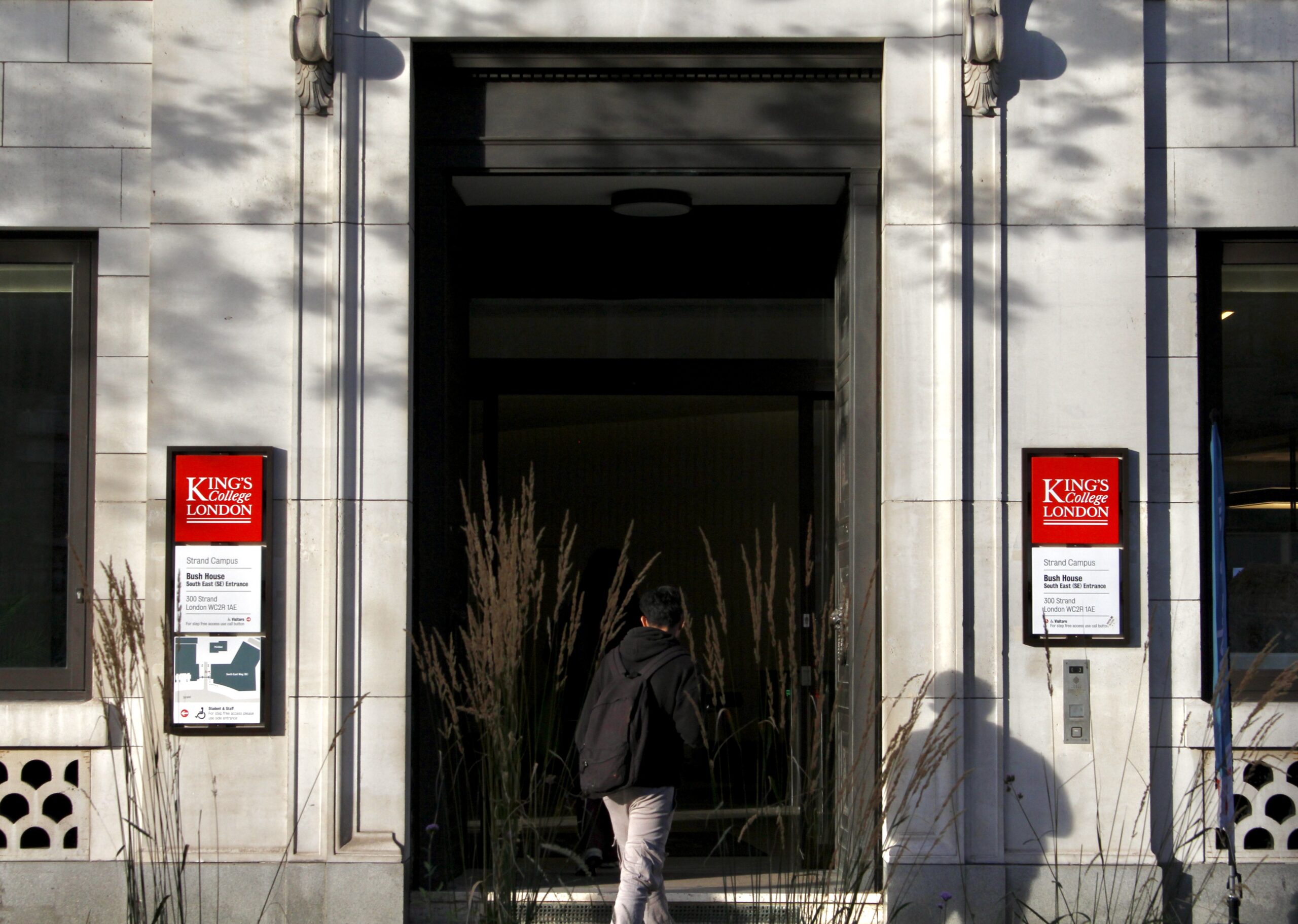An investigation by Roar News has uncovered that a King’s College London (KCL) exhibit aiming to raise awareness of ecological limits is estimated to use 328kWh of electricity on low energy-efficiency screens.
On 17 October 2023, King’s Culture unveiled an exhibit on the newly pedestrianised Strand entitled ‘The Quiet Enchanting’ to support the KCL Climate and Sustainability Action Plan. The artwork depicts “a mythic time of ecological abundance, where London’s recognisable landmarks exist in harmony with the natural world”, using a large section of artwork on printed boards and two display screens. The Quiet Enchanting was intended to assist “climate adaption”, as well as “just and fair transitions to net zero”.
Despite the presentation being described as “digitally generated artworks”, the digital screens mainly show static images with minor movements, such as floating sparks or hovering images. These screens have been identified by Roar as being LG 75XS4G Window Facing Displays, retailing at £5,559.99 a piece. On a scale of A to G, these are rated at C on their Energy Performance Certificate (EPC)*. This is despite KCL’s commitment to minimising environmental impact where it is practical to do so.
LG 75XS4G screens are reported by the manufacturer to use 592kWh of energy a year. With The Quiet Enchanting’s exhibition time being listed as 17 October 2023 – 29 February 2024, from 6am to midnight, this comes out at 328kWh of energy between the two screens. Considering that in their announcement of the display KCL affirmed their commitment to “embedding climate and sustainability into everything we do”, the decision to use the energy-inefficient electric screens alongside the printed artwork seems ill-considered.
328kWh is enough to power:
- An oven for 6 days and 20 hours
- A microwave for 9 days and 3 hours
- An LED lightbulb for 3 years and 11 days
- A PS4 for 3 months and 1 day
- A full kettle 3,936 times
While not a significant amount of energy compared to the university’s overall usage, the low efficiency rating and limited utility of the screens does challenge the message of the university and the display itself. The 328kWh used by the two screens would consume over 6% of all renewable electricity produced on-campus by King’s based on last year’s figures. The use of low-energy efficiency screens for 18 hours a day also undermines many of the ‘micro-saving’ energy tips offered by the university to students. These include clingfilm-wrapping single-glazed windows, putting tinfoil behind radiators, only running full dishwashers and putting lids on saucepans.
A KCL spokesperson said: “The screens were selected due to careful consideration around energy efficiency, the visibility required during more extreme weather and light conditions and ensuring that they are suitable to be reused by the University for future initiatives. King’s is decarbonising its electricity supply and some of the energy we use already comes from renewable sources. We are also part of a wider conversation among the creative industries on how to balance the impact of creating climate art with the positive impact the work can have in effecting climate-positive education or behaviours in audiences.”
KCL fully divested from fossil fuels in 2021 and have recently installed solar panels on the roof of Bush House. Yet the university is already under scrutiny for a change of climate goals. KCL’s net zero emissions target was moved from 2025 to 2030 in this February’s Climate & Sustainability Action Plan. King’s suggested that this was due to a move away from emissions offsetting, yet the way that the new targets are formulated makes this difficult to compare with the previous ones.
- *An earlier copy of this article stated that “On a scale of A+++ to C, these are rated at C on their Energy Performance Certificate (EPC)”. King’s College London contacted manufacturer LG and confirmed that the rating which was originally stated on the Curry’s website was incorrect.

















